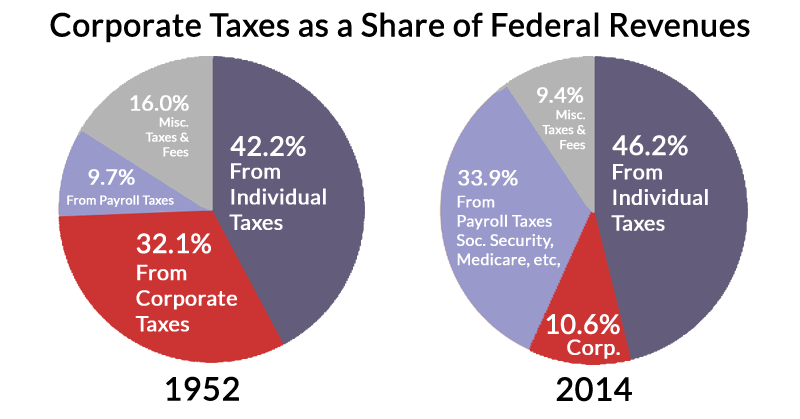What Fires Anger in Grass Roots America?
Washington – If you want to see what fires the grass roots passion for Donald Trump and Bernie Sanders and the populist rebellion against the U.S corporate and political elite, take a look at the latest case of an American corporation’s gaming the system for handouts and bailouts and then walking out on Uncle Sam and all of us.
Back in 2009, Johnson Controls, a $33 billion maker of auto batteries and industrial-scale HVAC systems, wound up with a $100 million chunk of the federal bailout for the auto industry. In 2010, it got another $300 million federal grant to develop advanced battery systems. But now, Johnson Controls wants to duck out on U.S. taxes by renouncing its U.S. citizenship and shifting its Legal residence to Ireland.
 Like nearly 50 other U.S. multi-national corporations over the past decade, Johnson Controls can dodge U.S. taxes legally through a corporate inversion – merging with a foreign ompany, Tyco International, based in Cork, Ireland. Tyco, too, was once a U.S. company based in New Jersey but in 1997, it skipped out on U.S. taxes by merging with a foreign firm based in Bermuda.
Like nearly 50 other U.S. multi-national corporations over the past decade, Johnson Controls can dodge U.S. taxes legally through a corporate inversion – merging with a foreign ompany, Tyco International, based in Cork, Ireland. Tyco, too, was once a U.S. company based in New Jersey but in 1997, it skipped out on U.S. taxes by merging with a foreign firm based in Bermuda.
Johnson Controls says it will save $150 million a year in U.S. taxes. And its CEO, Alex Molinaroli, gets a sweetheart payout of $20.5 million to $79.6 million over the next 18 months for making the deal. And if Molinaroli has to pay additional taxes as a result, the company will pay those taxes for him.
Crony Capitalism at Work
Oh, for instant replay in politics! You have to wonder if Congress had known this back in December 2008, how members would have reacted to the hard sell for an $80 billion auto industry bailout from former Johnson Controls President Keith Wandell, representing a major auto supplier.
“Speaking for our company, and, I am sure for all auto parts suppliers,” Wendell told the Senate Banking Committee, “we respectfully urge the members of this committee, and the Congress as a whole, to provide the financial support the automakers need at this critical time.” The collapse of even one U.S. carmaker, Wandell warned, would send shock waves through in the auto parts industry, spreading wars of layoffs..

Source (CC): Argonne National Laboratory
Fast forward to 2011 and once again Johnson Controls was benefitting from a big federal grant to help it build and run an advanced lithium ion battery plant in Holland, Michigan. Visiting the plant, President Obama hailed the company as a technology leader and then made the point that America’s ability to sponsor private sector innovation means that “everybody’s got to chip in” and that means “making sure that the biggest corporations pay their fair share in taxes.”
Steep Drop in Corporate Share of Tax Revenues
Obviously, that message fell on deaf ears. Johnson Controls has just become the 13th major U.S. corporation in the last 16 months to cut its tax bill through a foreign merger. Even before this latest wave, the Treasury Department estimated that corporate inversions will cost Uncle Sam $41 billion in lost tax revenues over the next decade.
But in truth, the corporate inversion game is just the latest strategem in a long-term trend that has eroded America’s corporate tax base. Since the 1950s, the corporate share of federal tax revenues has fallen steeply from over 30% to just 10% percent today – thanks, not only to a lower corporate tax rate but to $1.2 trillion in corporate tax loopholes passed by Congress.
One reason is that foreign tax havens have become the new norm for Corporate America. Major multi-nationals find financial hideaways like Bermuda or the Cayman islands where they set up shell affiliates, often little more than an small office with a big bank account, where they can stash their overseas profits and escape U.S. taxes.
In 2014, nearly three-fourths of Fortune 500 companies booked profits to foreign tax havens, according to a study by Citizens for Tax Justice and US PIRG. In all, U.S. companies were hoarding $2.1 trillion in profits offshore – enough to generate $620 billion in U.S. taxes if all those foreign earnings had come back home.
Johnson Controls Triggers Campaign Backlash
Much of that corporate tax dodging flies under the media radar. But the Johnson Controls action, quickly following Pfizer, Medtronics, Mylan and C&J Energy, has suddenly made corporate inversions a campaign issue. Democrat Bernie Sanders, broadly attacking “corporate deserters,” zeroed in on Johnson Controls for taking taxpayer money and then ducking taxes. “Profitable companies that have received corporate welfare from American taxpayers,” Sanders declared, “should not be allowed to renounce their U.S. citizenship to avoid paying U.S. taxes.”
Donald Trump, with Republican business credentials, concedes that “we have a huge inversion problem” because some corporate CEOs “have no loyalty to this country” and Congress has failed to take action. Hillary Clinton, denouncing “efforts to shirk U.S. tax obligations (that) leave American taxpayers holding the bag while corporations juice more revenues and profits,” has called for “an exit tax” on corporations that leave the country to lower their tax bill.
But so far on Capitol Hill, Corporate America has blocked reform.
How Big Business Blocked Corporate Tax Reform
The most promising push for corporate tax reform in Congress in recent years began with strong corporate backing and was painstakingly crafted in 2014 by Michigan Republican Congressman Dave Camp, a pro-business conservative who then chaired the powerful House Ways and Means Committee.

Former Rep. Dave Camp, (R-Mich.) authored major tax reform plan but got shot down by his former corporate supporters. (CC) House GOP
For years, business leaders had clamored for a cut in the corporate tax rate and Camp complied, proposing a cut from 35% to 25%. To raise revenues to offset that cut, Camp proposed closing some big corporate tax loopholes, including the tax exemption on overseas earnings, which would have undercut inversions.
Two days after unveiling his tax plan in February 2014, Camp flew to Park City Utah expecting to be feted at a big campaign fund-raiser attended by major corporate lobbyists. Instead, Camp ran into a buzz saw of opposition. Suddenly, the corporate lobbyists who had pushed him into tax reform were angry at him for wanting to close their loopholes. Within days, they had jawboned 50 congressional Republicans to publicly oppose Camp’s bill.
Corporate opposition killed Camp’s reform plan before it got off the ground, and Camp’s shipwreck became an object lesson for Congress on Corporate America’s ability to block action on tax issues. And the flood of corporate campaign contributions into congressional races, so far little noticed by the media, is aimed largely at protecting the legal tax dodges of America’s richest corporations.

 Hedrick Smith, who conceived this website and is its principal writer and architect, is a Pulitzer Prize-winning former New York Times reporter and Emmy award-winning documentary producer for PBS and PBS FRONTLINE.
Hedrick Smith, who conceived this website and is its principal writer and architect, is a Pulitzer Prize-winning former New York Times reporter and Emmy award-winning documentary producer for PBS and PBS FRONTLINE. 



1 Comment